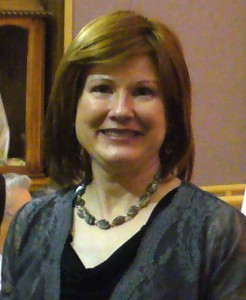 Before this year, I have to admit that being an advocate for Alzheimer’s disease was not on my list of things to do. I was aware of the disease, had written a few columns about it, and had known people with it, including the mother of some neighbors of mine. I knew (or thought I knew) how horrible the disease was and that there was no cure for it and no truly comprehensive and effective treatments. But, until this year, I was not directly affected by it.
Before this year, I have to admit that being an advocate for Alzheimer’s disease was not on my list of things to do. I was aware of the disease, had written a few columns about it, and had known people with it, including the mother of some neighbors of mine. I knew (or thought I knew) how horrible the disease was and that there was no cure for it and no truly comprehensive and effective treatments. But, until this year, I was not directly affected by it.
Several months ago, I found out that my father was diagnosed with it, and my perspective changed. I have become acquainted with the disease and its affect on the person with it as well as caregivers and the medical community. I have also gotten to know others with parents or other family members or friends who are caregivers or who have the disease, remarkable people with deep compassion and humanity.
Unfortunately, too, I have become aware of the stigma first-hand, as well as the limitations of current responses to the disease from the medical, daily care, and societal perspective. And, yes, with more sensitized ears, I’ve heard the jokes, too, and the flippant comments about people who “go nuts,” or “end up babbling in a chair in the corner,” not directed at anyone personally, but peppered throughout the societal vernacular so thoroughly that these and other mean-spirited jokes have become societally accepted.
Each of us for whom Alzheimer’s hits home will have a different response to the disease. But I have not yet met one person “in the trenches” who thinks that nothing else needs to be done about the disease or society’s response to it. Indeed, the need is tremendous, and awareness and education are still far behind where they could and should be.
In this, my take-away post for National Alzheimer’s Disease Awareness Month 2012, I ask you, whether you have been affected by Alzheimer’s disease or not, to consider becoming an advocate for this cause. Here are some suggestions:
Perhaps you do have a loved one with the disease, and you are his or her primary caregiver. By your example of service and compassion, you show the world that there are things greater than loyalty and love only expressed when times are good. This example is not only golden, it is needed to show the rest of the world what love in action truly is. Stand tall against the stigma that may come your way, and insist that your voice be heard above the din caused by others’ special interests. Even a whisper can change hearts.
If you do not have someone close with the disease, but know someone who is a caregiver, your example of support, staunch friendship, and a willingness to listen advocate in a powerful way. You show others that the caregiver to someone with Alzheimer’s disease is not an outcast from society, and you demonstrate that there is something more important than superficial acquaintance. No, Alzheimer’s disease is not as “a la mode” as other causes. But since when is true friendship trendy?
If you are a medical professional, perhaps a family practitioner or internal medicine physician, the time you take to listen to someone fearful of memory problems or behavioral changes in themselves or a loved one can be a lifeline like no other. I have heard many stories over the past few months of people who, when they first approached their doctor about cognitive changes, were dismissed as “stress” or “old age.” Yes, it takes more time and effort to pursue a diagnosis (or to rule one out). But that extra care, that extra step truly can make an enormous difference in someone’s life, perhaps enabling them to enter the next phase of their life with greater preparedness, support, and dignity.
If you are someone who is not remotely involved with any aspect of Alzheimer’s disease, I first have to thank you for reading this far! Just by doing so, you are showing an interest that is wonderful. But, also, I hope that the knowledge you acquire will help when, as will inevitably happen, you hear a joke, see someone snicker, or encounter a tired caregiver along your way. Perhaps you might lessen the stigma a bit, or smooth the way for someone whose heart is heavy and whose body is exhausted.
There are many worthy organizations and institutions involved in research, education, and advocacy for Alzheimer’s disease. These need much support in prayer, time, and resources. I cannot recommend one in particular, however encourage people interested to explore the possibilities and get to know the work and the people of these entitites and see if or where your heart is led.
As for me and advocacy?
When I was diagnosed with lupus and experienced the stigma that was then prevalent (including lack of a cure or effective treatments, friends who dropped out of sight and insensitivity regarding the debilitating nature of the disease), I really understood the darker, less-compassionate side of society. And, I appreciated and loved all the more the values of caring, respecting, and supporting those whose illness or infirmity might not be immediately visible, but is a heavy burden nonetheless. I also learned that each of us has particular gifts to bring to bear in a cause that needs more visibility and support. So, I turned to writing about lupus, illness, spirit, faith, and prayer. And, so too, with Alzheimer’s disease, I have put pen to paper (or, fingers to the keyboard) and will, no doubt, do much more in the months and years to come.
Wherever we are in our lives, whatever our gifts, when we use these to help, lift up, and care for those who cannot speak for themselves, we cannot begin to know what a positive impact it will have.
I know many are weary, discouraged, and frustrated. But God’s persistent, unending love abides with each of us. And through Him and the fellowship we have with one another, we are stronger than we realize. My prayers are with you, with us, with each person searching for more light and more grace. Please pray along, too. For, together, imagine where we can go!
Blessings for the day,
Maureen

